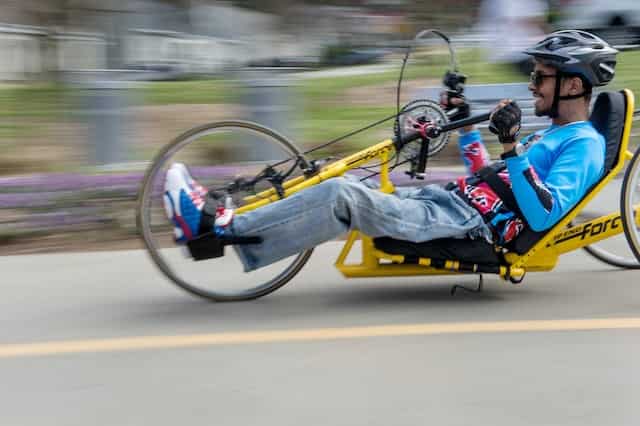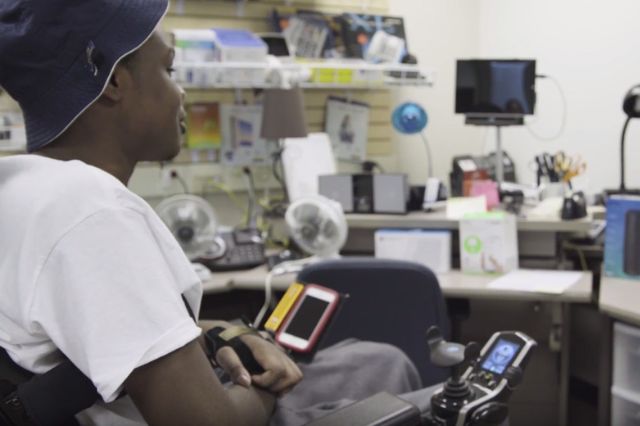Shepherd Center Neuropsychology Fellowship
About the Postdoctoral Fellowship in Adult Clinical Neuropsychology
The Clinical Neuropsychology Fellowship Program at Shepherd Center offers a unique environment to learn at a premier neurorehabilitation hospital while facilitating opportunities to collaborate with other allied healthcare professionals and provide direct care to a diverse clinical population.
As a member of the Association of Postdoctoral Programs in Clinical Neuropsychology (APPCN), Shepherd’s neuropsychology fellowship program is designed to meet the criteria for specialty education and training in clinical neuropsychology set forth by the Houston Conference and the upcoming Minnesota Update Conference guidelines.
Completing this 24-month neuropsychology program will prepare aspiring neuropsychologists to provide clinical services across varying cultures and diverse settings, with eventual certification by the American Board of Professional Psychology in Clinical Neuropsychology. Typical patient populations include traumatic brain injury, stroke/cerebrovascular disease, disorders of consciousness, tumor, anoxia, hydrocephalus, cerebral infection, multiple sclerosis, neurodegenerative disorders, neurodevelopmental conditions, geriatric conditions, and psychiatric disorders.
To learn more, download our Clinical Neuropsychology Fellowship Program brochure.
In more than four decades, Shepherd Center has grown into a world-renowned, 152-bed hospital that treats more than 8,000 patients annually across our inpatient, outpatient, and day programs. Recognized as Model Systems for both Spinal Cord Injury and Traumatic Brain Injury, Shepherd is part of an elite group of hospitals driven to provide extraordinary care. Some things that make us a top training facility include:
Get to Know Shepherd Center
Based in Atlanta, Georgia, Shepherd Center is a private, not-for-profit hospital providing world-class clinical care, research, and family support for people experiencing the most complex conditions, including spinal cord and brain injuries, multi-trauma, traumatic amputations, stroke, multiple sclerosis, and pain. Recognized as both a Spinal Cord Injury and Traumatic Brain Injury Model System, Shepherd Center is ranked by U.S. News as one of the nation’s top hospitals for rehabilitation. Shepherd Center treats thousands of patients annually with unmatched expertise and unwavering compassion to help them begin again.

My favorite part about working at Shepherd Center is the opportunity and support for growth. I completed my fellowship here, as did many of our staff. I was always supported in my individual career interests, inside and outside of Shepherd Center, and that helped me grow as a professional.” -Laurie N. Baker, Ph.D., ABPP, Director of Psychology (Postdoctoral Fellow, 2009-2011)
Laurie N. Baker, Ph.D., ABPP
Director of Psychology (Postdoctoral Fellow, 2009-2011
Meet Our Neuropsychology Fellowship Faculty
As a fellow, you'll be part of a dynamic team of more than 25 psychologists who are experts in their field and passionate about training future colleagues.

Michelle Jackson, Ph.D., ABPP-CN
Neuropsychologist
Director of Training

Vanessa Watorek
Neuropsychologist
Assistant Director of Training
Frequently Asked Questions
Shepherd Center is deeply committed to the training of future neuropsychologists from a culturally competent framework and fostering an environment that is highly sensitive to and appreciative of all aspects of diversity. The culture at Shepherd Center is fueled by progress, inclusiveness, and human connection, uniting individuals from all walks of life. As a Shepherd fellow, you’ll be part of a supportive community dedicated to individual growth and success. Learn more about what to expect as a neuropsychology fellow at Shepherd.
The Administration for Community Living’s (ACL) National Institute on Disability, Independent Living, and Rehabilitation Research (NIDILRR) recently awarded a five-year grant to Shepherd Center to continue its nearly 40-year tenure as a Spinal Cord Injury Model System (SCIMS) and to receive designation as a Traumatic Brain Injury Model System (TBIMS). NIDILRR awards grants to institutions that are national leaders in medical research and patient care and provide the highest level of comprehensive specialty services through rehabilitation and re-entry into full community life. Shepherd Center is part of an elite group to be designated as both model systems.
Shepherd Center's Clinical Neuropsychology Program offers one to two fellowship training positions.
The following are required for an application to be considered:
- A doctoral degree, including defense of a dissertation, from a clinical or counseling psychology doctoral program accredited by the American Psychology Association (APA) or the Canadian Psychological Association (CPA) before the start date of the fellowship
- Completion of an APA/CPA-accredited psychology internship program with a major area of study or emphasis in neuropsychology training/education.
- Letter of interest
- Curriculum vitae
- APPCN Verification of Completion of Doctorate Form
- Copy of one neuropsychological report (appropriately de-identified), preferably one relevant to our clinical population
- Official graduate school transcripts
- Three (3) letters of recommendation
This two-year fellowship is consistent with Houston Conference Guidelines, with a balance of assessment, intervention, and consultation, reflecting prototypic contemporary neuropsychological practice in inpatient and outpatient settings. The fellow will be trained and evaluated in the competencies delineated by Smith (2019), which details the education and training in clinical neuropsychology. Fellows will also have ample opportunity to work alongside other allied health and rehabilitation specialists. Learn more about the educational goals and program structure of our neuropsychology fellowship.
Fellows complete two, 12-month major rotations, as well as minor rotations, didactics, supervision, and research as part of the fellowship. One major rotation focuses on the neurorehabilitation of individuals with neurologic disorders in inpatient settings. The other rotation focuses on post-acute neurologic disorders, as well as individuals presenting with chronic sequelae of neurologic disorders. Learn more about Shepherd's Neuropsychology training program. Learn more about Shepherd's Neuropsychology training program.





